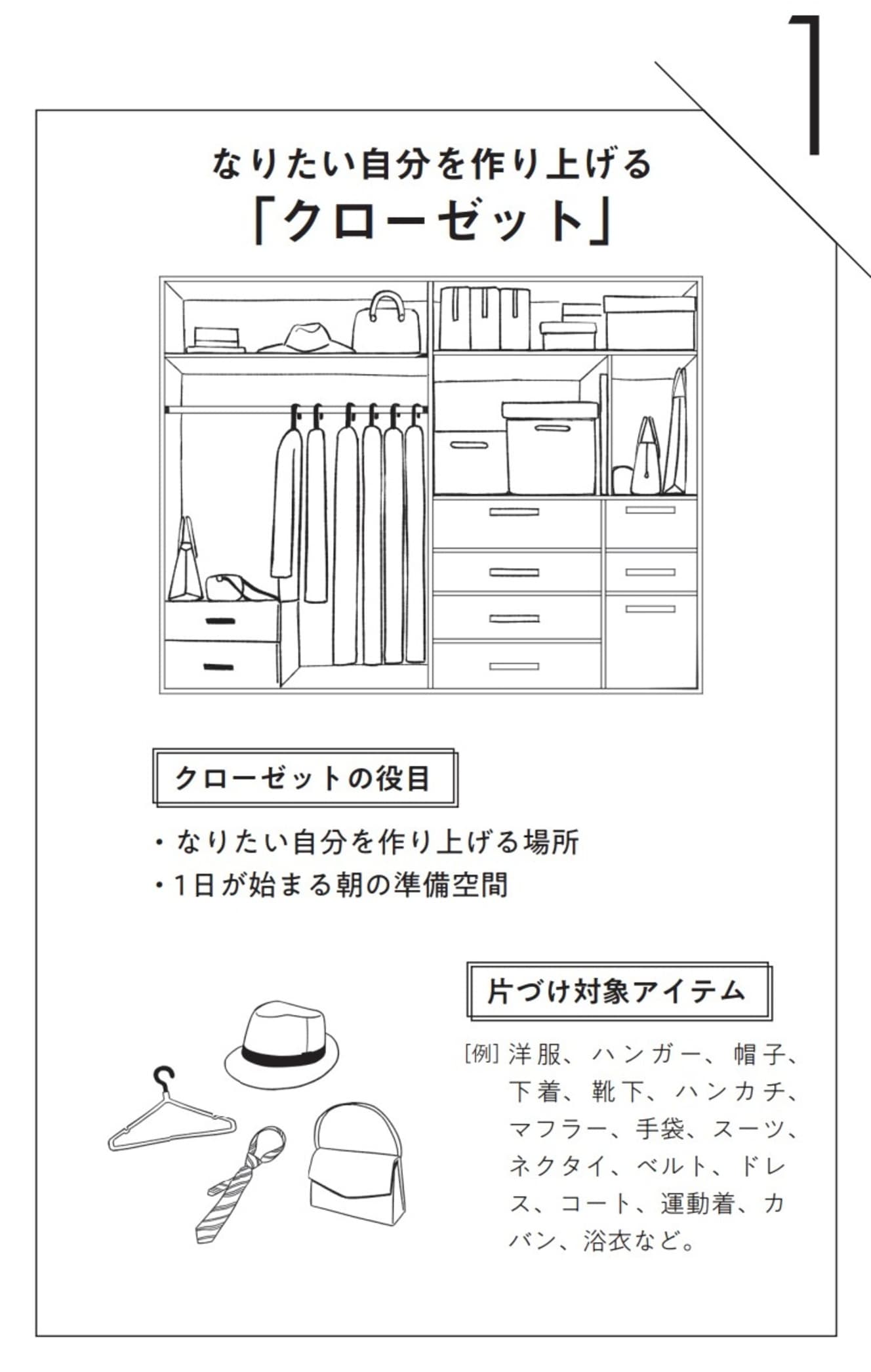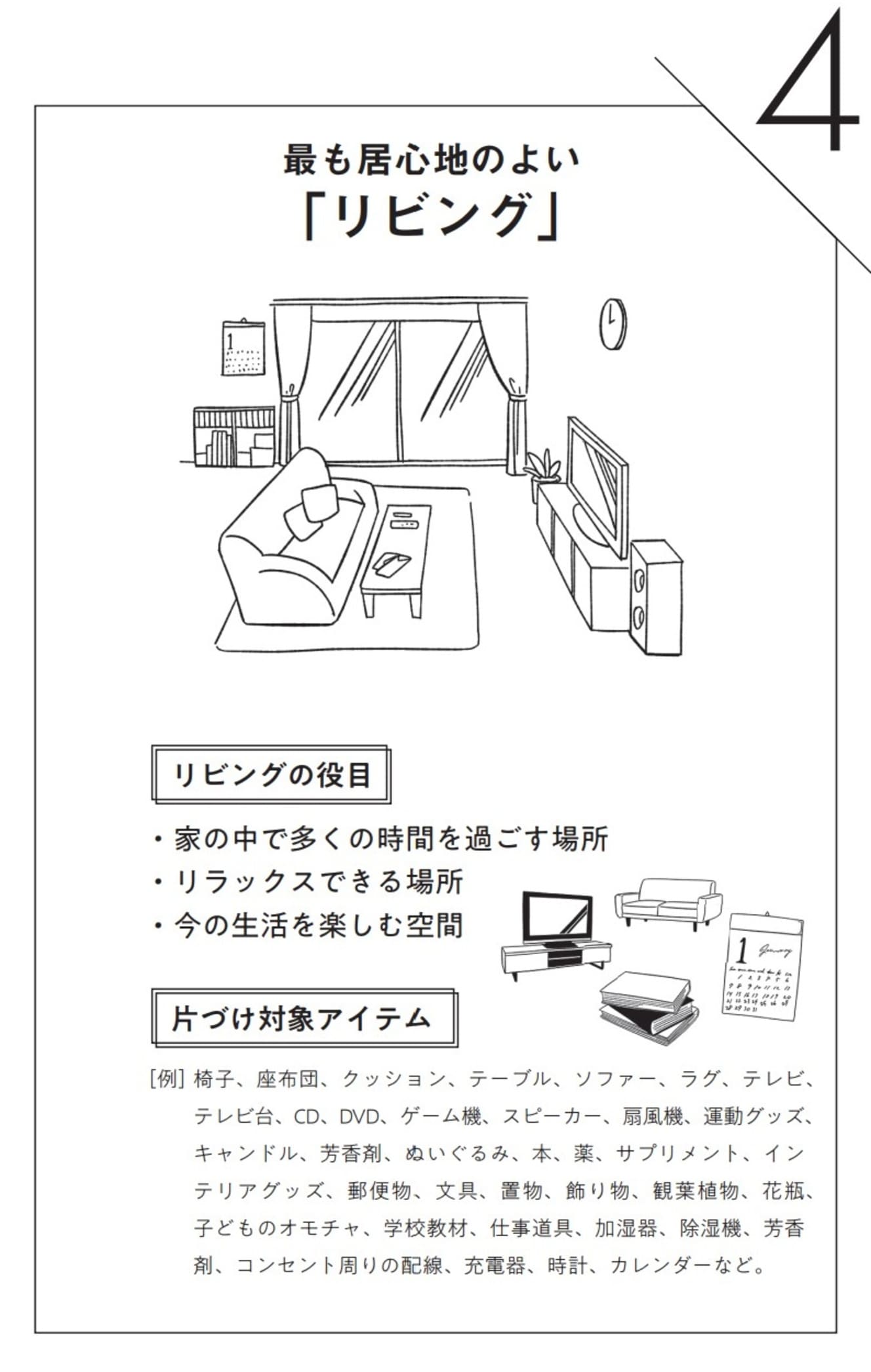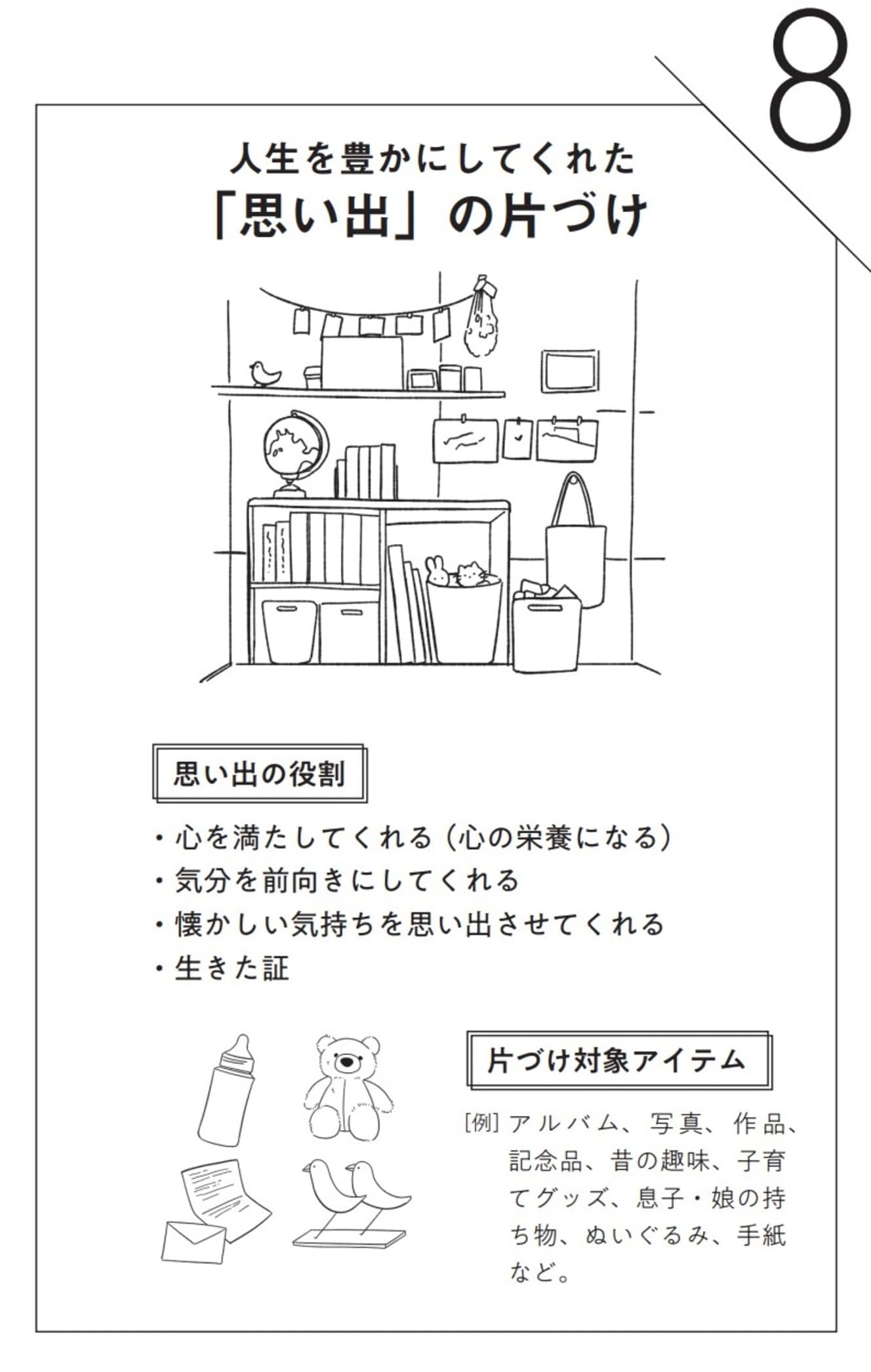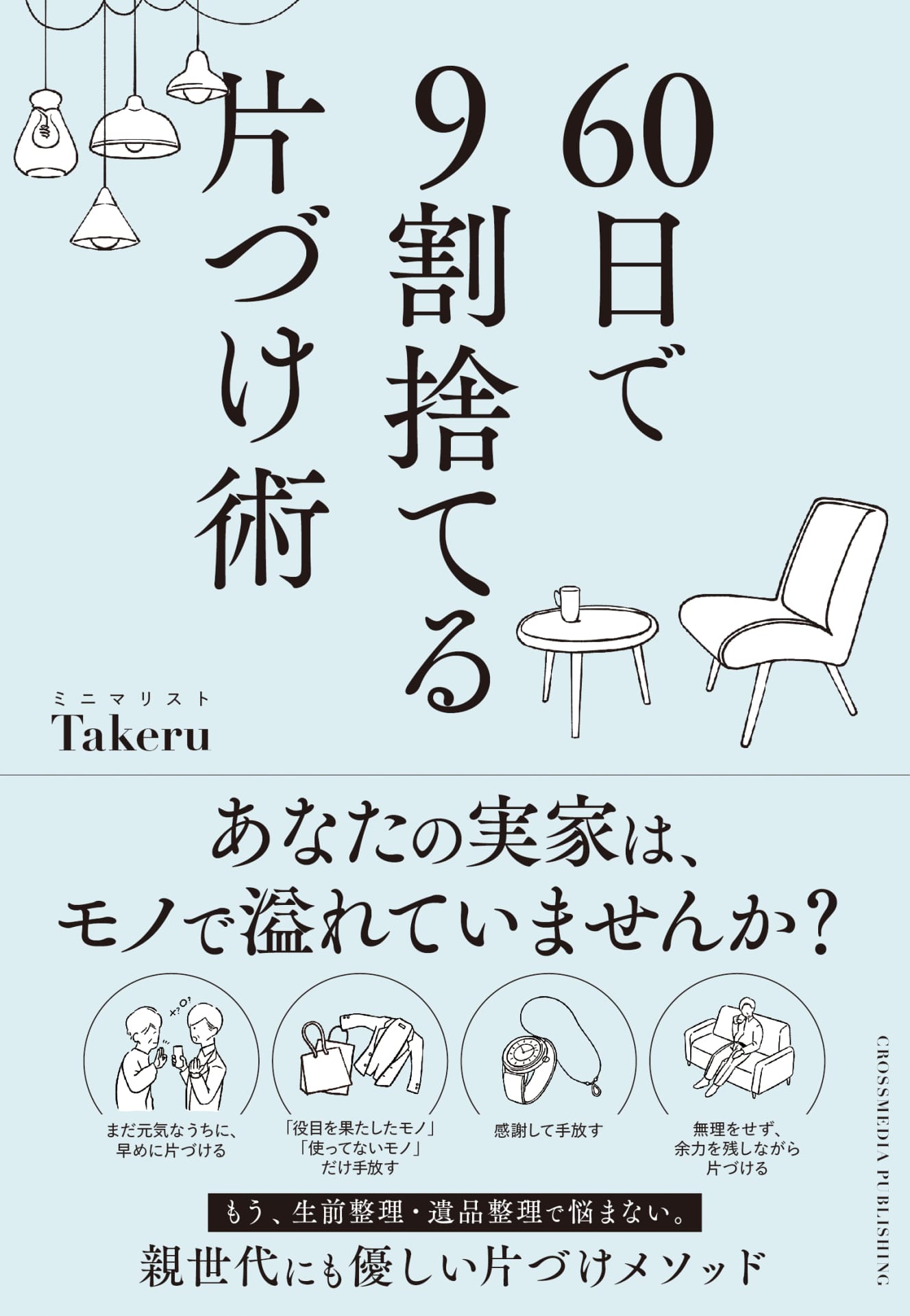90% of parents’ belongings are garbage”… “How to Throw Away 90% of Your Belongings in 60 Days” to avoid inconveniencing your family with your belongings.
The number of problems caused by malicious estate cleaners is increasing rapidly.
This year is also the year of the “2025 problem,” when one in five Japanese will be elderly in the latter half of their lives, ushering in a super-aged society. There are concerns that the burden on the working-age population will become even greater with regard to social security issues such as medical care, long-term care, and pensions, which are the main issues discussed here. On the other hand, a major practical burden among those who have elderly people in their families is the issue of “stuff.
As nuclear families have become more common and people are living apart from their elderly, it has become more common in recent years to ask professional companies to organize belongings such as belongings left behind. In such a situation, the number of troubles surrounding estate liquidation companies has been increasing rapidly. The number of complaints to the National Consumer Affairs Center has tripled in the past 10 years, with complaints such as, “I wascharged much more than the estimated fee,” and “They disposed of all of my belongings without my permission if I was not present.
I wondered if this is happening because we now take it for granted that we have so much stuff. Many people, especially seniors, are happy to have things, so there is no way around it. But it’s still a little sad to see the family members left behind get caught up in such trouble.
So says Takeru, a popular YouTuber with a monthly PV of 2 million, who is a minimalist. In December, he published a book titled “The Art of Tidying Up: 90% Disposal in 60 Days” (Crossmedia Publishing, Inc.). We asked Mr. Takeru about the following
Almost 90% of belongings become trash
What was a bit shocking in the book was the statement that “90% of parents’ belongings become garbage.
He said, “I experienced my grandmother’s and uncle’s prenatal clearance, and the reality is that 90% of their belongings were unnecessary. Ninety percent of the items are things that are not necessary for life, and the remaining 10% are things that can be brought in when the person needs nursing care or hospitalization. Also, when it comes to the question of whether the surviving family members would want to leave behind the items left in the house when the person passes away, I think it’s almost a no-no. I think there are some memorabilia and valuables, but most of them are things that are not needed. Therefore, I think it is realistic to say that almost 90% of the items left behind become trash.
(Takeru, same as above) Although the person who is told that his or her belongings are “trash” is not happy about it, it is the family that has to deal with the “90%” when something happens to them. The time, financial, and emotional burden is sometimes immense. If the family does not know where important documents such as bank books, seals, and land titles are located, they may be in trouble when they are hospitalized, and problems may easily arise after death, such as inheritance. Even if it does not mean end-of-life planning, it is necessary to do a certain amount of prenatal organization while you are still in good health.
According to Takeru, a family of four with two children has an average of 3,000 to 5,000 items. Of that number, he says, about 1,000 items are used on a daily basis. So, how do you know what to throw away?
Let go of items that have not been used for more than a year.
The items that you use frequently in your daily life are “Army 1,” and the items that you use occasionally, say a few times a year, are “Army 2. If you lose the items in the first and second groups, your life will definitely become inconvenient, so there is no need to throw them away. If you are a beginner or have a hard time getting rid of things, I recommend that you start by letting go of the things in the third army first.
If you don’t use things in your current life for more than a year, it is definitely better to let go of them. If you are a retiree, it will also help you enjoy your retirement life in a comfortable room, so if you see that point, your room will be much tidier.”
However, it is difficult to make up your mind to let go of your albums, notebooks you have written over the years, mementos, and other memorabilia. Takeru’s advice for organizing such items is as follows: “The basic premise is that you need to keep the things that are very important to you.
The basic premise is that you should not throw away things that are very important to you,” he says. However, after organizing my uncle’s and my grandmother’s notebooks, I realized that you have to check each page of a diary, notebook, or notebook-type notebook because it may contain important passwords and other important information. That is a grueling task for the family members who are left behind. If you can’t let go of them, I would suggest that you put the ones that don’t have important information written on them in a box so that you can throw them away with it when you pass away.
I would also prioritize albums and memorabilia and carefully select the top 20 or 30 or so. If you have a lot of things, they are just stored in a closet, so it’s the same as if you don’t have them. Letting go of other things will also make the top 20 memories shine even brighter.”
However, if you are middle-aged or older, the amount of stuff you have accumulated over the course of your life must be quite large. When it comes time to organize, it may seem daunting to know where to start. ……
I start by looking at the room as a whole to get an idea of how much stuff is in there. It is important to have a plan that allows the person to clean up at his or her own pace, even if it is a one- or two-year plan.
What is important is the motivation of the person who is going to clean up, so it is important to grasp the overall situation and make a solid plan. Takeru recommends starting with the highest priorities, such as organizing valuables and documents.
Advantages of Living with Fewer Things
Whether or not a person needs a lot of things depends solely on his or her sense of values. Many people, especially those who are middle-aged or older, are happy to own a lot of things and to be surrounded by the things they like. However, Mr. Takeru prefaces his view with the statement, “This is just my value system,” and then goes on to say that “having less stuff means having less unhappiness.
Living with less stuff in old age gives you more spatial freedom,” he says. You can escape quickly in the event of a disaster, and you won’t get injured when taking out items stored in high places. It also makes it easier to do housework. You will have more free time because you will spend less time doing housework.
Also, the cost of living will be lower when you can live with less stuff, so you will be able to live well on a pension, or if you have to work, you will need less time. Furthermore, there will be fewer conflicts with relatives over living conditions. By reducing the number of things you own, you will probably reduce the unhappiness of not having enough money, not having enough time, and having many conflicts with family members. I think that one way to alleviate the various stresses of old age is to reduce the number of things you own.
It might be a good idea to make a fresh start at the beginning of a new year and organize the things around you and your parents.
Minimalist Takeru
Takeru is a minimalist YouTuber who turned his life around when he discovered minimalism, gave up over 3,000 things, and became able to live a small, frugal life on 100,000 yen per month. He has been searching for what true happiness is and realized that “less is more”. Currently, in addition to her YouTube activities, she interviews minimalists around Japan and organizes off-line meetings for minimalists. He is the author of “Living More Richly on 100,000 yen a Month: A Minimalist Lifestyle” and “Living More Richly on 100,000 yen a Month: Minimalist Organizing Techniques” (Crossmedia).




